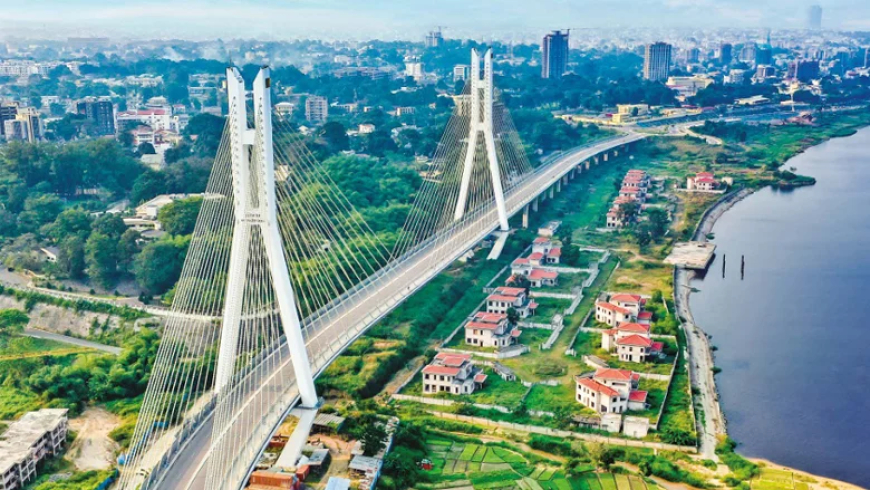WHO Warns of Escalated Disease Risks in the Democratic Republic of the Congo

The World Health Organization (WHO) has issued an urgent warning regarding the deteriorating health situation in the eastern Democratic Republic of the Congo (DRC), where ongoing conflicts have significantly increased the risk of infectious disease outbreaks. The crisis, fueled by violent clashes and humanitarian challenges, has left millions vulnerable to cholera, mpox, and other preventable diseases, as medical services remain disrupted.
Conflict and Its Impact on Public Health
The eastern DRC has long been a hotspot of instability due to ongoing conflicts involving government forces, armed militias, and rebel groups. This violence has severely impacted healthcare infrastructure, making it difficult for medical professionals and humanitarian organizations to provide essential services. As a result, WHO officials have highlighted the growing risk of infectious disease outbreaks due to displacement, lack of clean water, and poor sanitation in overcrowded refugee camps.
According to WHO’s latest report, more than 6.9 million people have been internally displaced within the DRC, many of whom are living in makeshift camps with little access to food, clean drinking water, or medical care. The overcrowding in these conditions has created the perfect breeding ground for infectious diseases.
Cholera Outbreaks on the Rise
One of the biggest health threats in the region is cholera, a waterborne bacterial infection that causes severe diarrhea and dehydration. The WHO has reported over 30,000 suspected cholera cases in the DRC since the start of 2024, with more than 1,000 confirmed deaths due to the disease.
Cholera spreads through contaminated water and food, making it a significant concern in regions where clean drinking water is scarce. The conflict has disrupted water supply systems and sanitation services, leaving thousands of people reliant on unsafe sources for drinking and cooking. WHO officials are urging for immediate intervention to contain the outbreak by distributing oral cholera vaccines, improving access to clean water, and strengthening disease surveillance systems.
Mpox Virus Resurgence
In addition to cholera, WHO has raised alarms about the reemergence of the mpox virus (formerly known as monkeypox) in eastern DRC. The region has reported a sharp increase in mpox cases, particularly in areas where healthcare facilities have been destroyed or abandoned.
Mpox is a viral disease that causes fever, rash, and swollen lymph nodes. It is primarily transmitted through close human contact or exposure to infected animals. The WHO has identified more than 5,000 new mpox cases in the past six months, with a significant portion of cases affecting children and immunocompromised individuals.
WHO is working with local authorities and non-governmental organizations to distribute antiviral treatments and vaccines to high-risk communities. However, the ongoing violence has made it difficult for healthcare workers to reach those in need. Attacks on medical facilities and aid convoys have further complicated response efforts.
Humanitarian Response and WHO’s Call for Global Support
The WHO is calling for urgent global intervention to prevent further disease outbreaks and minimize the health risks facing millions of displaced people. The organization is working closely with the United Nations (UN), Médecins Sans Frontières (Doctors Without Borders), and local health authorities to coordinate emergency aid, including:
- Deploying mobile medical teams to conflict-affected areas
- Distributing vaccines against cholera and mpox
- Providing emergency medical supplies such as rehydration salts, antibiotics, and antiviral medications
- Setting up emergency treatment centers to care for infected individuals
- Ensuring access to clean water and sanitation facilities to prevent the spread of waterborne diseases
Despite these efforts, WHO officials warn that funding shortages, security concerns, and logistical challenges are hampering response operations. The organization has appealed for at least $100 million in immediate funding to scale up emergency health interventions.
A Dire Situation That Needs Urgent Action
The health crisis in the Democratic Republic of the Congo is worsening daily, with infectious disease outbreaks threatening the lives of millions of people. The combination of violent conflict, displacement, and poor healthcare infrastructure has created a perfect storm for public health disasters.
WHO has emphasized that without swift international support, thousands more lives could be lost to preventable diseases. The agency is urging governments, humanitarian organizations, and the global community to act swiftly by increasing financial aid, deploying healthcare personnel, and ensuring safe access to affected regions.
The situation in the DRC serves as a grim reminder of how conflict can devastate public health, and only a united global effort can help contain the crisis before it spirals out of control.
What's Your Reaction?
 Like
0
Like
0
 Dislike
0
Dislike
0
 Love
1
Love
1
 Funny
0
Funny
0
 Angry
0
Angry
0
 Sad
0
Sad
0
 Wow
0
Wow
0



















































